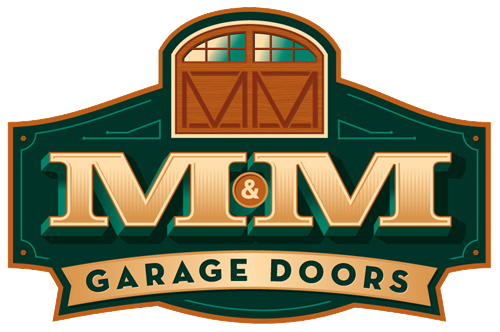The leaves have fallen and the temperatures are taking a nosedive, but living in Michigan, we know that’s not the worst of it. Winter is coming, and with it, snow, ice and frigid temps. It’s important to prepare your home, and your garage, for the season ahead to ensure it functions properly.
Your garage door takes a beating during winter, especially if you neglect its maintenance. Here are three of the most common winter garage door issues and how you can solve them.
1. Damage to Weather Stripping
Temperature fluctuations that occur as the day wears on can cause snow outside your garage door to first melt and then refreeze repeatedly. As melted snow turns into ice, it can make the garage door stick to the ground. Then, when you go to open up the door, the protective weatherstripping peels off the bottom, damaging the door’s seal.
Damaged weatherstripping will allow cold air and moisture to get in your garage, impacting other door components, such as the garage door tracks and motion sensors. These items can be extremely sensitive to low temperatures, so to keep further damage at bay, call your garage door repair professional to replace the weatherstripping immediately.
You can avoid this situation in the first place by shoveling outside your garage door frequently. Brush snow off your vehicle’s tires before you park in your garage, sweeping away puddles of water so no moisture accumulates around the bottom of your garage door or the floor of your garage.
2. Door Opens Slowly
Freezing temperatures impact several of the garage door’s components, from the opener to the rollers to the tracks. Lubrication in the tracks tends to harden when temperatures drop, making it tough for the rollers to pass along the tracks smoothly. Yet issues can arise if you don’t put in enough track lubrication as well, leading to a slow opening. In warmer weather, a small amount of grease doesn’t usually pose a problem, but during winter, the rollers need a lot more lubrication in order to move seamlessly.
If you don’t think the tracks are the issue, you may want to take a closer look at the opener motor or spring. That should be done by a professional, though, as finding the source of the issue usually only comes with extensive training.
3. Contracting Metal Components
If your garage is not well-insulated, the metal components of your garage door will contract. This includes the tracks, chain, and springs; if they are compromised, this can adversely affect the integrity of the door’s moving parts. When temps freeze, the springs controlling the door get stiff and brittle, and can easily break under the weight of the door.
Don’t take broken springs lightly. These present hazardous conditions, which is why only a professional should address them. If you are in the market for a new door, look for one that’s well-insulated to retain more heat.
Professional Garage Door Repair
If your garage door acts up this winter, the experts at M&M Garage Door are here to help. Whether you have torn weatherstripping, broken springs, misaligned tracks or a frozen door, rest assured, we’ve seen it all, which means we can fix it all. Contact us at 586-610-5434 for a repair appointment.





